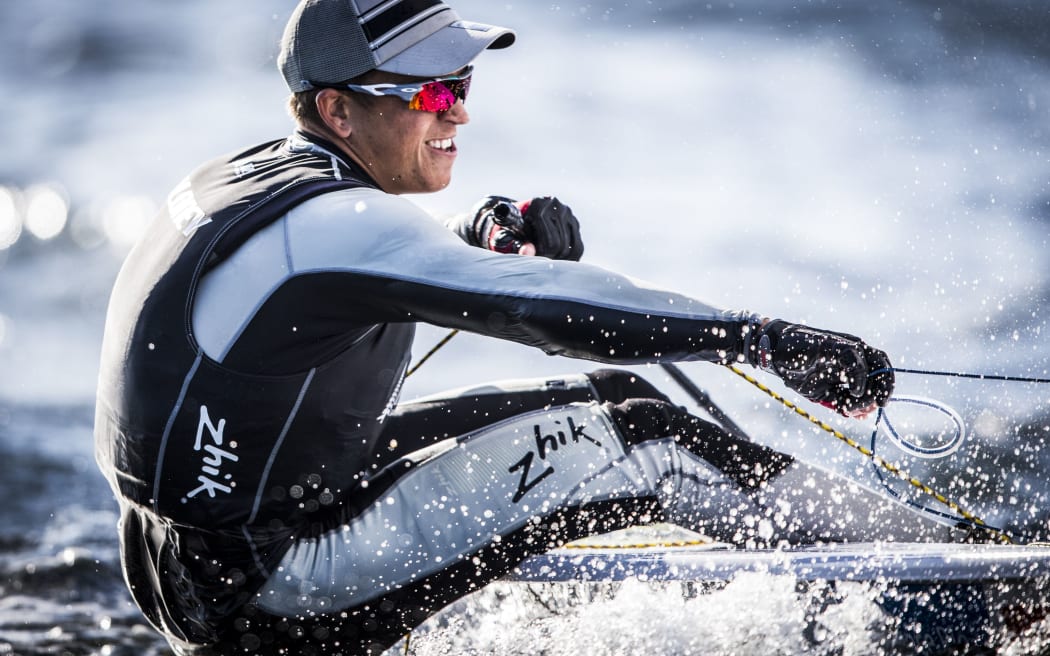The world's best racing sailors have duelled each other, tricky winds, currents - and floating garbage - on Rio's iconic Guanabara Bay in a warmup for next year's Olympics.
The test regatta, which will run until August 22, features 339 sailors from 52 countries, in many cases the same athletes returning to Rio in 12 months to compete for medals.
Laser dinghies and windsurfers were among the first of the seven Olympic classes in action, their colourful sails standing out against the cliffs of Rio de Janeiro's Sugarloaf Mountain.
With staggered start dates for the different events spread across two days, Andy Maloney, New Zealand's Laser representative, was the only New Zealander to go racing on day one.

Andy Maloney Photo: PHOTOSPORT
The 38-boat fleet sailed two races in light and challenging conditions on the Ponte Course and Maloney placed 11th in the opener, then sixth in the second, to lie sixth overall at the end of day one.
"Our first race was pretty light breeze - 5-6 knots and very shifty, very patchy and it was pretty hard to read," said Maloney.
"I had a good first beat and then the second beat there was big differences in pressure from the different sides of the course so I lost quite a few boats, but it was still an okay result."
"The second race the breeze had filled in a bit, but again it was about playing the shifts and keeping your head out of the boat looking for the pressure and I had a decent race, so it was good."
Although lifelong local knowledge is expected to be something of an advantage for native Brazilians, many international sailors have been training intensively in Rio to catch up.
A less welcome challenge facing sailors and windsurfers is the pollution in Rio, where huge quantities of untreated sewage go directly into the sea, posing potential health risks.
The most immediate danger, though, comes from floating household garbage.
"The bigger problem is hitting something," said Marina Lopez, a crew member on a Spanish Nacra 17 catamaran.
"It's already happened that someone hit a plastic bag or something. You can't see it until you hit it."
In the narrow margins of Olympic-level racing, just snagging a bag on a boat's rudder can make a huge difference.
"You have to stop and clear the rudder," said Australian sailing team spokeswoman Cora Zillich.
"Or it could be something solid and you capsize."
Despite repeated assurances from Brazilian authorities that the bay is safe, International Sailing Federation head of events Alistair Fox said the sport's governing body is taking the problem seriously.
"We've specifically appointed a member of our medical mission, a trained doctor in tropical medicine, to be here," he told journalists on Friday.
"The other area obviously we're very concerned about is objects in the water that could affect the fairness of racing."

